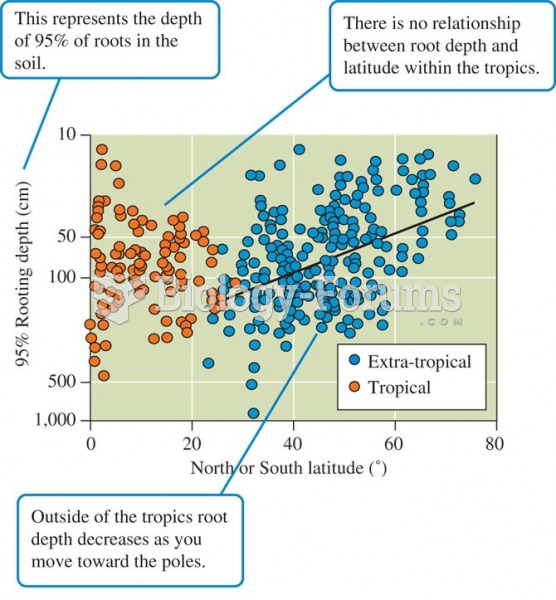|
|
|
In 1844, Charles Goodyear obtained the first patent for a rubber condom.
Certain topical medications such as clotrimazole and betamethasone are not approved for use in children younger than 12 years of age. They must be used very cautiously, as directed by a doctor, to treat any child. Children have a much greater response to topical steroid medications.
Most fungi that pathogenically affect humans live in soil. If a person is not healthy, has an open wound, or is immunocompromised, a fungal infection can be very aggressive.
Liver spots have nothing whatsoever to do with the liver. They are a type of freckles commonly seen in older adults who have been out in the sun without sufficient sunscreen.
Fungal nail infections account for up to 30% of all skin infections. They affect 5% of the general population—mostly people over the age of 70.
 Normal development of posture and spinal curves. (A) Toddler: Protruding abdomen; lumbar lordosis. (
Normal development of posture and spinal curves. (A) Toddler: Protruding abdomen; lumbar lordosis. (
 During a total solar eclipse, the solar corona can be seen with the naked eye, during the brief peri
During a total solar eclipse, the solar corona can be seen with the naked eye, during the brief peri





